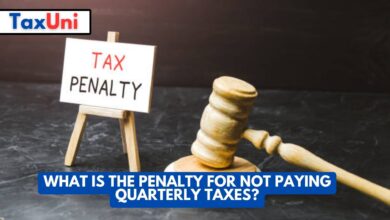Qualified Small Business Stock (QSBS)
This article will provide a comprehensive guide to understanding QSBS, including its benefits, requirements, and frequently asked questions.

Contents
Investing in small businesses can be risky, but the potential for high returns makes it an attractive option for many investors. The Internal Revenue Code offers several tax provisions that can make investing in qualified small business stock (QSBS) more appealing by providing tax breaks and incentives for eligible investors. The qualified small business stock exclusion (QSBS exclusion) is one of the most notable provisions, as it allows eligible investors to exclude a portion of their capital gains from the sale of QSBS from federal income tax.
Another provision, Section 1244, also allows investors to claim ordinary loss treatment for their investment in QSBS if the stock becomes worthless or is sold at a loss. To qualify for these provisions, both the investor and the issuing company must meet certain criteria, including holding the stock for a minimum period of time and meeting specific requirements for the issuing company. The QSBS exclusion and Section 1244 can provide significant tax benefits for eligible investors, but there are limits to the amount of gain or loss that can be excluded or deducted. As such, investors should consult with a tax professional to ensure they meet all requirements and understand the potential tax implications of investing in QSBS.
What is Section 1202?
Section 1202 of the Internal Revenue Code provides Qualified Small Business Stock rules. This section was added to the code in 1993 to encourage investment in small businesses. The section allows investors to exclude a portion of the gain from the sale of QSBS from federal income tax, provided that certain requirements are met. The amount of the exclusion depends on the date of acquisition of the QSBS and the length of time it is held by the investor.

What are the Requirements of Section 1202?
To qualify for the tax benefits of Section 1202, the stock must meet certain requirements, including:
- The stock must be issued by a domestic C corporation with aggregate gross assets of $50 million or less when the stock is issued.
- The investor must acquire the stock at the original issue in exchange for money, property, or services.
- The company must use at least 80% of its assets in the active conduct of a qualified trade or business.
- The stock must be held by the investor for at least five years.
- The company must not be engaged in certain types of businesses, such as banking, finance, or consulting.
What is Qualified Small Business Stock Exclusion?
The qualified small business stock exclusion (QSBS exclusion) is a tax provision that allows eligible investors to exclude a portion of their capital gains from the sale of qualified small business stock (QSBS) from federal income tax. To qualify for this exclusion, the investor must meet certain requirements, such as holding the QSBS for at least five years, and the issuing company must meet specific criteria, including being a domestic C corporation and having gross assets of $50 million or less at the time of issuance.
The QSBS exclusion can be a valuable tax benefit for investors, as it can significantly reduce their tax liability. However, there are limits to the amount of gain that can be excluded, and investors should consult with a tax professional to ensure they meet all requirements before attempting to claim the exclusion.

What is Section 1244?
Section 1244 is a provision of the Internal Revenue Code that allows investors to claim ordinary loss treatment for their investment in qualified small business stock (QSBS) if the stock later becomes worthless or is sold at a loss. This provision applies to investments made in domestic corporations with an aggregate capitalization of $50 million or less at the time of issuance. The maximum amount of ordinary loss that can be claimed for a Section 1244 stock investment is $100,000 for individual taxpayers ($50,000 for married taxpayers filing separately) or 50% of the total investment, whichever is less.
This provision was designed to encourage investment in small businesses and provide a measure of relief for investors if their investment becomes worthless. However, not all QSBS qualifies for Section 1244 treatment, and investors should consult with a tax professional to ensure they meet all of the requirements before attempting to claim the provision.





